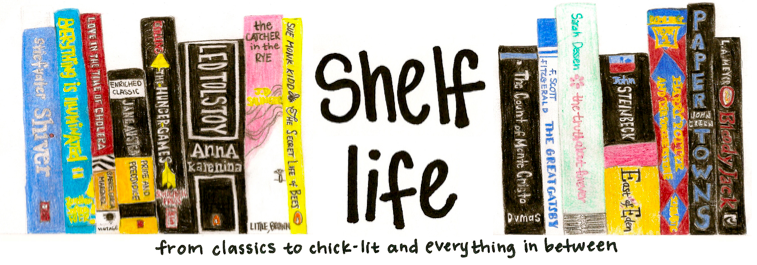★★★★☆
I am one of those people who don't like to see a film adaptation of something without having read the original book. Thus, moved by a curiosity about the new Les Misérables movie that came out recently - having never seen the Broadway show - I decided to tackle the colossal tome (1,232 fearsome pages long) that is Victor Hugo's Les Misérables. (And, finally, I'm able to mark one more book off the BBC Top 100 list!) I started it about a week and a half before I came home for winter break, and only finished it on Christmas day. That is a long time for me to take to finish a book.
That being said, I did not find Les Misérables a slow read. Not at all, in fact! Like Anna Karenina before it, Les Misérables surprised me by being quite readable indeed. In my experience, with books like these it's all in the translation. I got the movie tie-in copy (I know, I know, for shame) because it was cheaper, and that translation proved to be a good one, not that I have anything to compare it to. The storyline is engaging and Hugo's prose is flowing and descriptive without - at least in my opinion - being overly long-winded, as some writing of that time is wont to be. However, Hugo's approach to Les Misérables is as much that of a historian as that of a novelist, resulting in a number of lengthy (upwards of 50 pages) sections devoted to detailing this battle or that uprising without advancing the plot. During these sections - but these sections alone - my interest would wane and I would begin skimming rather than really reading, having a hard time ingesting the information when I couldn't easily plug it into a clear schema of plot or characterization.
For those, like me, not familiar with the storyline of Les Misérables via the Broadway musical, it concerns escaped convict Jean Valjean and the chance path that leads him to adopt Cosette, daughter of Fantine, who died alone and penniless, a victim of larger societal forces that conspired to separate her from her young daughter and leave her in abject poverty. Devoted to the protection and well-being of Cosette, Jean Valjean is forced to live under ever-changing assumed identities in order to evade discovery by Javert, a policeman obsessed with bringing Valjean to justice. These personal crises, shaped and exacerbated by the forces at work in the chaos of early nineteenth century Parisian society, come to a head in the July Revolution of 1830.
Les Misérables' characters tend toward the archetypal, but considering Hugo's ultimate purpose of crafting a sweeping landscape of society and the times rather than a detailed portrait of one individual's trials, I think it's appropriate that the characters be somewhat two-dimensional. Thus the portrayal of society's ills is individualized so as not to be overwhelming, but it's not so overly-individualized as to be non-universal. Jean Valjean's, Fantine's, and Marius's hardships are unique but not un-parallelled; similar stories of hardship and struggle were simultaneously played out in thousands of endless permutations throughout the city. The experiences of the characters of Les Misérables are microcosmic stand-ins for the collective experiences common to all Parisians during the tumultuous and downtrodden times of nineteenth century France, a period of near-constant revolution and perpetual unsettlement.
I haven't seen the movie yet, so I can't offer any opinions on the adaptation from page to stage to screen, but having read the book, I am more eager than ever to see it. Whatever your interest level in the movie may be - a long-time devoted fan or a disparager of musical theater - Les Misérables is a book worth the time investment, a classic for a reason. I would absolutely recommend it, daunting girth of the spine and all. The only reason I didn't give it five stars is because, while it was consistently good throughout, it lacked a certain "wow!" factor that it takes for me to endorse a book that highly.
Books Read This Year: 108
Top 100 Progress: 50/100


No comments:
Post a Comment